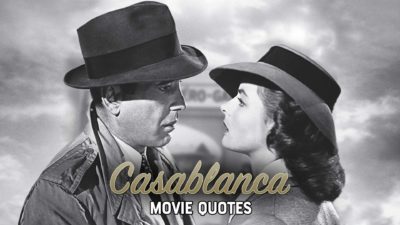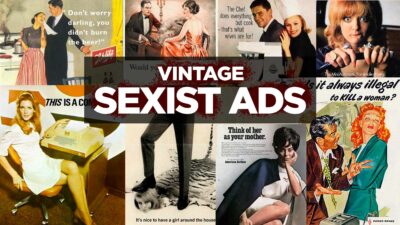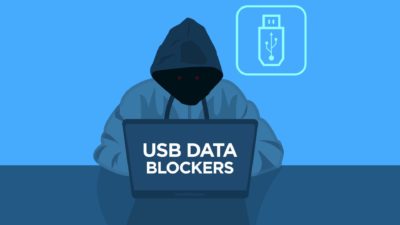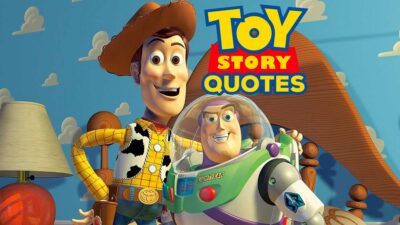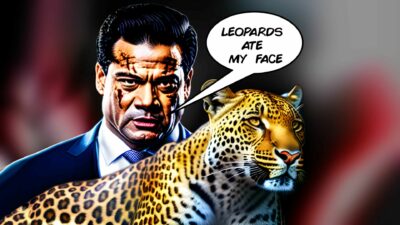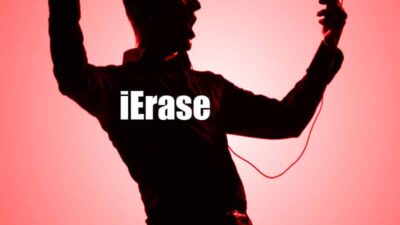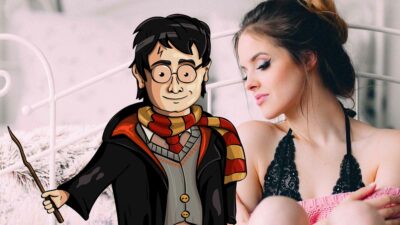Jeff Gaspin, COO of the Universal Television Group, discusses the NBC Universal Experience, growth of NBC’s cable properties and the missed opportunities of VOD.
The NBC Universal Experience Creates A Fresh New Upfront Concept For Advertisers
It is the buffer zone between the elevated American Gladiators photo op and the cramped space that plays host to the Sunday Night Football autograph assembly line that the system breaks down. With daylight and the promise of a restorative cocktail in plain view, the densely packed crowd of media buyers and press is torn between getting its swerve on and lining up to secure John Madden‘s signature on the pebbled vinyl surfaces of a thousand novelty footballs.
“If I don’t get Cris Collingsworth‘s autograph, my husband will have me killed,” a striking, middle-aged woman tells her companion, marking the first time in human history anyone has ever put those words together in that particular sequence.

The Growth Of NBC Universal’s Cable Properties
Less a traditional network upfront presentation than a blaring, whirring, gleaming celebration of the full complement of NBC Universal’s media brands, the NBC Experience is a call-out to the ritzy May events of years past while serving as a quiet reminder that the company’s future growth prospects lie in its cable properties.
It’s that mix of bravado and stealth that perhaps best characterizes Jeff Gaspin‘s approach to overseeing NBCU’s entertainment cable division, a stable of channels that includes USA Network, Bravo, Sci Fi Channel, and Oxygen, as well as Telemundo and a handful of digital networks. The soft-spoken, 47-year-old president and COO of the Universal Television Group doesn’t draw a lot of attention to himself, leaving the speeches and public pronouncements to his network heads/brand ambassadors, Bonnie Hammer and Lauren Zalaznick, and his boss, Jeff Zucker.
In fact, the NBCU brass will forego any sort of overt speechifying whatsoever. While the president and CEO of the media conglomerate will later tell a reporter that “cable is the biggest and most important part of the portfolio,” Zucker’s endorsement comes long after the last hors d’oeuvre has been liberated from its silver serving tray. Only Conan O’Brien will mention the cable unit on this night, cracking a few jokes about the inherent geekiness of Sci Fi staffers. “Take that, nerds,” O’Brien snarks when a passel of Sci Fi stalwarts hiss back at the flame-haired scarecrow. “What are you going to do, crash my BlackBerry?”
Gaspin, who’s in conversation a short distance away from the makeshift stage, looks up and laughs. Conan O’Brien’s not the only NBCU luminary who’s quick on the draw.
Losing Project Runway To Lifetime
Two weeks before the upfront event, Gaspin offers a sharp take on what’s known locally as “the Runway thing.” Sitting at his desk on the 52nd floor of 30 Rock, Gaspin almost casually brushes off the defection of the Bravo hit Project Runway, which in mid-April switched Lifetime Networks after a contract dispute with series producer The Weinstein Co.
Reflecting on the loss of Runway, which has been Bravo’s flagship series since it sashayed onto the net’s lineup back in 2004, Gaspin is almost sanguine. “The way I would put it is, I think Lifetime paid the ransom for someone else’s baby,” he says.
The deal, which gives Lifetime the right to run five new seasons of Runway, is estimated to be worth in the neighborhood of $150 million. And while NBCU has sued Weinstein Co. for breach of contract, Gaspin says that the loss of the competition series won’t have any long-term impact on Bravo’s ratings. “Bravo had its best April ever, and Runway wasn’t even on our air,” Gaspin says, adding that the network saw staggering gains in all key demos. “We were up 34% in total viewers and 57% among adults 18-49. We grew 69% with women 18-49, all without any lift from Runway. So there’s no way anyone can say we live and die based on one show.”
Both parties are scheduled to appear in New York Civil Supreme Court on June 17. Regardless of what happens on the legal front, NBCU has already launched a counter-offensive, preventing Runway producers Dan Cutforth and Jane Lipsitz of Magical Elves from decamping with their signature series, locking them into a first-look deal that will see the pair continue to produce Top Chef for Bravo and Last Comic Standing for NBC.
Gaspin can’t say much, if anything, about the case, although his equanimity suggests that the Runway poach is just business as usual. “You know, Weinstein was at my Bravo thing five years ago,” Gaspin says. “Let’s see where he is five years from now.”
Audiences Embrace VOD
If the Runway situation is a burr in NBCU’s saddle, it’s a minor concern when juxtaposed with what Gaspin characterizes as “the most destructive development to hit this business in 20 years.” With DVR penetration at 20 percent and climbing, consumers are turning away from traditional appointment TV in favor of an on-demand model. As viewers increasingly embrace time-shifting, the first casualty is commercial ratings.
Of the marquee NBCU cable entertainment nets, USA fares best as far as commercial retention is concerned, holding onto more than 92% of its audience during the breaks, according to Nielsen Media Research data. (the USA network takes the No. 1 spot on AdweekMedia’s first-ever Cable Hot List, recognizing networks that have demonstrated standout rating performance and programming prowess and captured industry buzz in the past year.) Season to date, Sci Fi lost 11% of its viewers when it cuts to commercial, while Oxygen saw 12% vanish. Bravo has had a particularly rough time upon conversion to C3 ratings, losing 15% of its household audience and 16% of the core 18-49 demo.
Miscalculating The DVR Threat
With that in mind, it’s little wonder that the DVR has Gaspin spooked. As he sees it, the horse is out of the barn, and the barn is up in flames. “We just missed that this was happening, back when TiVo and RePlay were the focal points, and the DVR didn’t seem to pose much of a threat,” he says. “But once it found its way into the set-top, that totally changed the game.”
While pod-busting initiatives and analysis of commercial viewership have helped stanch the flow a bit, the ad-supported TV model will bleed to death if programmers don’t more aggressively combat ad churn. As part of a defensive strategy he’s been whipping up over the last year or so, Gaspin now advocates stripping viewers of a certain measure of control. “We can’t let what happened with DVRs happen to us with video-on-demand,” he says. “I’ve had many conversations with the cable operators about VOD, and one of the reasons we like streaming so much is because you can’t fast-forward through the commercials.”
Gaspin will outline his proposal May 19, on a panel the second morning of Cable Show 2008, the annual confab hosted by the National Cable & Telecommunication Association. In short, he wants to swap out the fast-forward functionality while seeding VOD content with a limited commercial load. “They have to disable fast-forward for it to make sense for us, and we have to figure out the dynamic ad-insertion technology,” he says. “Because if more people give up on watching linear television, we have to make sure that we can make up some of the difference with the long tail…We only get so much back with C3.”
Also on the panel will be Discovery Communications president and CEO David Zaslav, who agrees with his former colleague. Zaslav — who, before joining Discovery in 2007, was NBCU’s president of cable and domestic TV and new media distribution — calls VOD one of television’s great lost opportunities. “We should have done a better job in the early going,” he says. “We didn’t press distributors hard enough to ensure that we got all the best content out there on VOD, and it’s a shame because if we did we wouldn’t need DVRs.”
This late in the game, most cable operators offer a relatively skimpy menu of VOD fare, in part because so much of the content that appears on linear TV has more than one owner, which complicates rights and clearances to no end. “What’s happened is that over the years, we’ve trained people that the best shows aren’t available on VOD. It could have been the dominant platform for watching TV out of sequence, but it’s not,” Zaslav says.
Adds Gaspin, “It’s not going to be a quick fix. It will take 12 to 24 months to really straighten it all out. But I do think that as an industry, we can help slow DVR usage and penetration as much as possible.”
Given his druthers, Gaspin would go so far as to yank the fast-forward button off the DVR altogether, although he concedes it’s unlikely that consumers who have grown familiar with the technology would stand for that.
Creating Watercooler Shows
Meanwhile, the cable chief says programmers are going to have to begin putting more effort into the creation of watercooler shows, experiential fare like Lost or The Sopranos that holds an almost communal sway over its audience. “There’s always going to be a large population that wants to watch live TV, that wants to watch a show when it’s on, that wants the community aspect of it,” he says. “It will certainly push the value of sports and live events. It will certainly force the programmers to think about a balance of content that includes Idol-type shows that have an immediacy to them, as well as some more commodity-type shows.”
The Growth Of Cable
Six years ago, more than 75% of NBCU’s profits were delivered by the broadcast network. Today, entertainment cable accounts for a third of its earnings, which means its prospects are increasingly tied up with Gaspin’s performance as a manager and a strategist.
“Jeff’s a very capable executive. As an executive who has worked on the creative and the business ends, he’s got a great capacity to understand both sides of the street,” says NBCU CEO Jeff Zucker. “I have enormous confidence in him.”
Great Instincts
Along with his native intelligence, Gaspin is what Zaslav calls “a consensus builder.” Says Zaslav, “On the one hand, he’s a good listener. He wants to know what you’re thinking. At the same time, in terms of his instincts, he has very strong convictions and he goes with them.”
Case in point: When NBC bought Bravo and put Gaspin in the driver’s seat, it had a pilot in the works called Queer Eye for the Straight Guy. At the time, Zaslav argued that the title alone would make advertisers squeamish. But Gaspin wouldn’t budge. “First thing I said was that we had to change the name,” Zaslav recalls. “He said, ‘No, we’re not changing it — if anything, we’re going to drop more money into making it better.’ He was right. The show was a huge hit.” Gaspin notes that the timing of his wager couldn’t have been more fortuitous. “Queer Eye for the Straight Guy just happened to coincide with the rise of the metrosexual,” he says. “It was happening simultaneously, and we became a pop-culture centerpiece with Queer Eye.
Since then, Bravo has become the place where pop-culture icons emerge.” For his part, Zucker says Gaspin’s less-than-ostentatious management philosophy goes a long way toward establishing his effectiveness as a network exec. “He’s not out there tooting his own horn, he’s just getting the job done,” Zucker says. “I don’t know if low-key is the right word, but Jeff is certainly very disciplined and very measured.”
The Dateline NBC Incident
For all that, Gaspin has endured a rocky patch or two. In 1992, as VP, programming, and development at the Peacock, Gaspin helped develop the newsmagazine Dateline NBC. The next year, in an investigative report about automotive safety called “Waiting To Explode“, producers were found to have rigged a General Motors pickup truck with remotely detonated explosives. Michael Gartner, NBC News president, ultimately resigned. Four months later, Gaspin was let go. Over the next four years, Gaspin carved out a niche for himself as a Reality TV programming maverick, creating VH1’s Behind the Music. He returned to NBC in 2000.
NBC Universal’s Place In The GE Portfolio
While the cable group has enjoyed meteoric success since Gaspin made his way back to NBCU, as just one component in the gargantuan General Electric empire, the networks can only work to hit their internal targets. In what has practically become a rite of spring, Wall Street analysts tend to agitate for GE to sell off the entire NBCU group whenever the weather starts to turn. Earlier this year, JPMorgan analyst C. Stephen Tusa told investors that it was high time GE began taking a serious look at the value of parting ways with its media arm
“Given limited synergy with GE’s industrial businesses… there lies the potential for strategic moves at some stage over the next few years,” Tusa said. “We think 2008 could be the time, with the business at a crossroads of better internal performance, though risk exists in 2009 around an uncertain economy.” He went on to say that NBC could fetch some $45 billion.
Last month, when NBCU’s first-quarter performance fell short of GE’s expectations, other analysts rallied around a split. NBCU’s 3% profit increase missed the parent’s target of 5 to 10%. GE chairman Jeff Immelt responded to the Street in the negative. In a report to shareholders, Immelt said that a sale was not in the offing, “not before the Beijing 2008 Olympic Games… not after the Olympic Games. It doesn’t make sense.”
Deal or no deal, it’s long been Gaspin’s philosophy to take a more molecular approach to the business, to fix what he can and move on from there. “We have this one-to-one correlation with our audience and we can transfer that knowledge to our advertisers,” he says. “If you can work out those relationships and keep people locked in during commercial messaging, you win. You can’t let all the other stuff keep you up at night.”
Related Articles:
- Interview with NBC’s Salil Dalvi on the Future of Live Mobile TV
- Conan O’Brien’s Masturbating Bear Makes Final Appearance on NBC
- NBC’s Sci-Fi Channel Being Re-branded to SyFy
- MSNBC Announces Largest Blog Advertising Campaign In History








